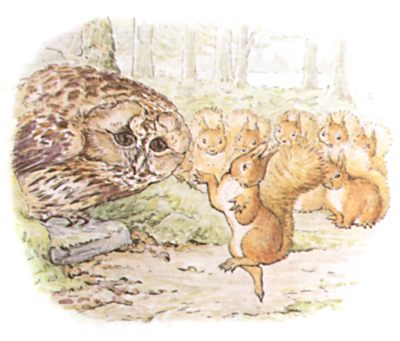
Friday
Thanks to Covid-19, I’ve now spent more time watching squirrels than at any time of my life. We hung two bird feeders over our deck and have been involved in a non-stop war with squirrels ever since. It’s like an elaborate chess game: they offer a counter move to each of our own.
Apparently John Blades has written a novel (Small Game) in which squirrels appear as demon figures of havoc and discord. According to the Guardian article where I learned about the book, Blades draws on the malicious trickster Ratatoskr in Norse mythology to depict them. That sounds about right.
When I hung a cylindrical feeder off poles attached to the deck railing, the squirrels were somehow able to shimmy up the poles and drape themselves down, hugging the cylinders as they calmly munched. Entwining barbed wire over the poles didn’t deter them. Nor did a cone. And when I hung a box feeder from a wire, somehow the squirrels leaped from a nearby table and got their claws into the ironwork—and then again, calmly munched.
Meanwhile, launching themselves towards a cylindrical feeder from the same wire managed to shake loose the s-hook from which the whole apparatus hung. They moved in on the scattered loot.
I imagine them as Squirrel Nutkin from the Beatrix Potter book and experience their blatant foraging as the owl Old Brown experiences Nutkin’s taunts. Eventually Old Brown grabs the squirrel and Nutkin is lucky to escape with half a tail. I’m not as lethal but no less irritated.
Yet I’m simultaneously impressed. It’s remarkable how squirrels can leap from a tree and catch the slenderest of branches on their way through the forest. Both their toes and their tails are marvels. I would never want to squirrel-proof my feeder too thoroughly as I would miss out on their daring gymnastics.
Yeats is similarly impressed and uses acrobatic squirrels to criticize a calcified government. No authority, someone with “tame will,” “timid brain,” and knitted brow, could ever breed “that fierce tooth and cleanly [habitually clean] limb,” he writes. This “proud, wayward squirrel” laughs upon the bough and delights in bounding from limb to limb. Is the squirrel here a stand-in for the rebellious poet?
“No government appointed him,” Yeats informs us. So does that make me a colorless functionary as I try to limit our bird feeders to birds?
An Appointment Being out of heart with government I took a broken root to fling Where the proud, wayward squirrel went, Taking delight that he could spring; And he, with that low whinnying sound That is like laughter, sprang again And so to the other tree at a bound. Nor the tame will, nor timid brain, Nor heavy knitting of the brow Bred that fierce tooth and cleanly limb And threw him up to laugh on the bough; No government appointed him.
Further information: For those interested, our sunflower seeds are currently attracting goldfinches, cardinals, phoebes, Carolina wrens, titmice, nuthatches, and chickadees. The last four are also drawn to our suet cage, which in addition pulls in four kinds of woodpecker: downy, hairy, and red-bellied woodpeckers and, until recently, yellow bellied sapsuckers.
Another squirrel poem: For a delightful autumn poem about squirrels, check out my father’s “The Hickory Trees and the Squirrels.”

